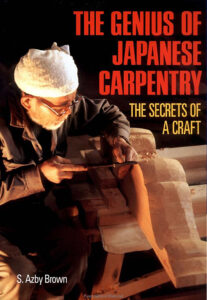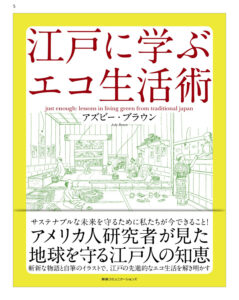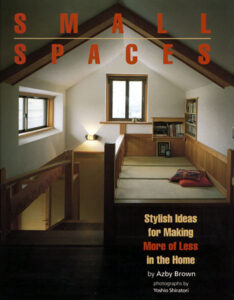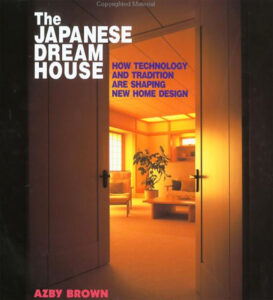BOOKS on Japanese architecture, construction, and traditional environmental practices.

The Genius of Japanese Carpentry
Tuttle, revised edition 2014.
Chronicles the work of master temple carpenter Tsunekazu Nishioka at Yakushiji in Nara, Japan. Heavily illustrated with detailed drawings and photographs by the author. This revised edition is in a larger format than the 1989 original, and includes additional text and color photographs.

The Genius of Japanese Carpentry
Kodansha Int'l, 1989
Describes the construction of wooden temple buildings at Yakushiji in Nara, Japan by late master temple carpenter Tsunekazu Nishioka. Heavily illustrated with drawings and photographs by the author. Original edition.

The Very Small Home
Kodansha Int’l, 2005.
Eighteen compact homes by Japanese designers are described in detail, with close attention to design features that enhance livability despite the size limitations of the spaces. Illustrated by the author. Foreword by Kengo Kuma.

Just Enough: Lessons in Living Green from Traditional Japan
Kodansha Int’l, 2009
A detailed account of environment and resource management in Edo-period Japan. Focuses on forests, agriculture, rivers, energy, waste, recycling, and infrastructure, architecture, and city planning. Heavily illustrated by the author. WEBSITE

江戸に学ぶエコ生活術 (Edo ni manabu eco seikatsujutsu)
Hankyu Books/ CCC Media House, 2011
Japanese translation of Just Enough- Lessons in living green from traditional Japan. Translated by Sachiko Ikushima.

Small Spaces: Stylish Ideas for Making More of Less in the Home
Kodansha Int'l, 1993
Presents solutions by Japanese designers to problems of maximizing limited living space. Illustrated with dozens of full-color photographs by Yoshio Shiratori, and drawings and architectural plans by the author.

The Japanese Dream House
Kodansha Int'l, 2001
This book describes the evolution of Japanese lifestyle ideals as seen through the changing products of the house manufacturing industry. Technical, logistical, and marketing aspects are discussed. Heavily illustrated with archival photos that span the postwar years.
